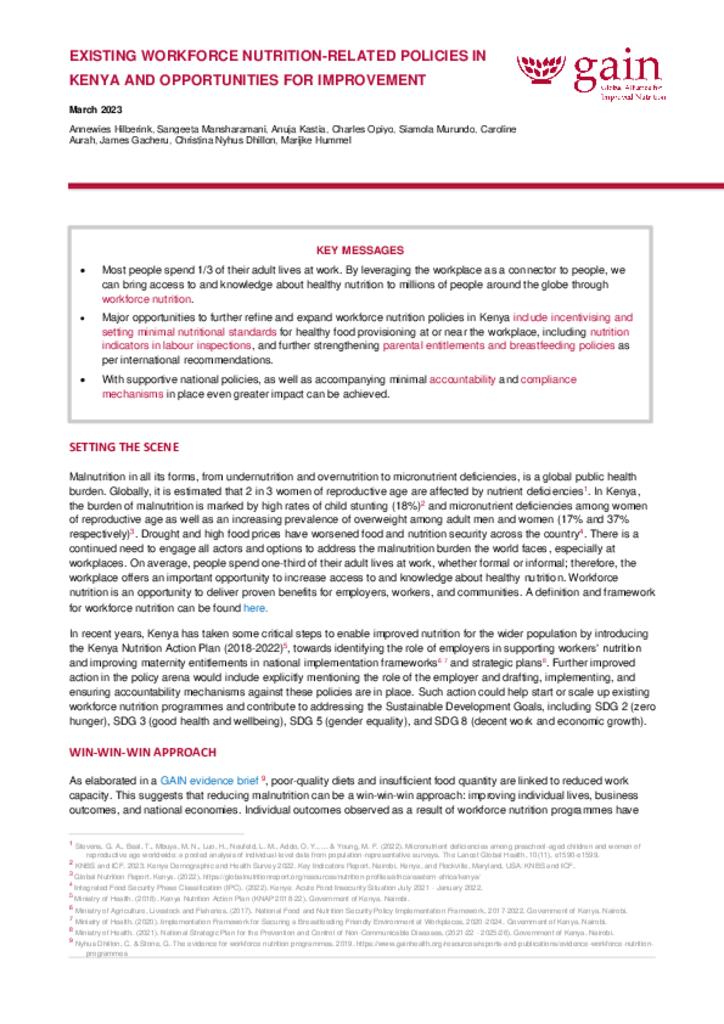Malnutrition in all its forms, from undernutrition and overnutrition to micronutrient deficiencies, is a global public health burden. Globally, it is estimated that 2 in 3 women of reproductive age are affected by nutrient deficiencies.
In Kenya, the burden of malnutrition is marked by high rates of child stunting (18%) and micronutrient deficiencies among women of reproductive age as well as an increasing prevalence of overweight among adult men and women (17% and 37% respectively). Drought and high food prices have worsened food and nutrition security across the country. There is a continued need to engage all actors and options to address the malnutrition burden the world faces, especially at workplaces. On average, people spend one-third of their adult lives at work, whether formal or informal; therefore, the workplace offers an important opportunity to increase access to and knowledge about healthy nutrition.
Workforce nutrition is an opportunity to deliver proven benefits for employers, workers, and communities. A definition and framework for workforce nutrition can be found here. In recent years, Kenya has taken some critical steps to enable improved nutrition for the wider population by introducing the Kenya Nutrition Action Plan (2018-2022), towards identifying the role of employers in supporting workers’ nutrition and improving maternity entitlements in national implementation frameworks5 6 and strategic plans. Further improved action in the policy arena would include explicitly mentioning the role of the employer and drafting, implementing, and ensuring accountability mechanisms against these policies are in place.
Such action could help start or scale up existing workforce nutrition programmes and contribute to addressing the Sustainable Development Goals, including SDG 2 (zero hunger), SDG 3 (good health and wellbeing), SDG 5 (gender equality), and SDG 8 (decent work and economic growth).
